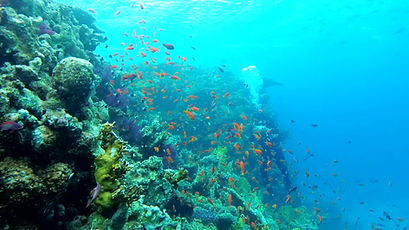Plankton Synechococcus
Synechococcus is a very dominant plankton strain. It is cataloged as phytoplankton and!!! as cyanobacteria. A displacement of the red smear algae (Cyanos) in the tank by Synechococcus is actually a "mistake". Synechococcus is one of the main plankton in the sea. E.g. as a food source for corals and filter feeders - food for nauplii zooplankton etc.
In many aquariums, nutrient sources are broken down or changed unconsciously over time. Such “imbalances” can cause cyanosis to arise and spread.
Synechococcus can help eliminate a number of deficiencies. The plankton wants to multiply and is therefore a food competitor to the "cyanos"
As a very good source of food for "probably" all creatures in the sea, biological cycles are activated again through feeding. Zooplankton can multiply again by adding phytoplankton, corals are fed "organically" and strengthened. Useful micro algae multiply again. etc. Everything contributes to achieving a stable “milieu” again.
A good start is to suck out deposits by changing the water and thereby add new minerals and trace elements with the fresh water.
Dosage:
A lot helps a lot??? No!! Please start with 100 ml per 100 liters of sea water, even if there is a large infestation. In the event of an overdose, the Po4 and No3 values could very quickly slip into unmeasurable levels, which is absolutely not good for the corals. If the Po4 and No3 values are rather high, there is no reason not to dose a little higher.
Synechococcus as food:
50ml. to 100 liters of sea water, has proven to be good. A tank with lots of LPS and soft corals will definitely leave you wanting more.
This information is based on our experience. We have already seen a lot in the fight against “Cyanos”. From everything gone in 3 days, to 3-4 months and still no improvement. Finally, a partial water change with real sea water with the addition of plankton helped. Many ways lead to the goal.
Danger!! If you feed a lot of phytoplankton in the aquarium, the Po4 and No3 values are reduced. (Food source for phytoplankton). Please check regularly
Phytoplankton can be kept in the refrigerator for 4-8 weeks. Shake a little every now and then so that the cells don't clump together.
top of page

SKU: 1003
CHF12.00Price
1 Liter
bottom of page
